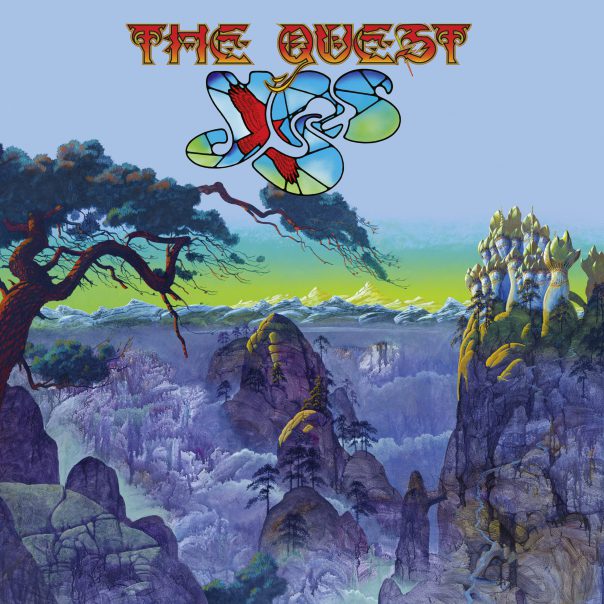ALBUM REVIEW: Yes stays in its comfort zone on ‘The Quest’

YES, “The Quest.”
English progressive rock band Yes has been around for more than 50 years. It was among the first prog-rock bands to break through to the mainstream and remain wildly influential on the genre. On the other hand, in those 50 years, there hasn’t been a whole lot of evolution.
The Quest
Yes
InsideOutMusic, Oct. 1
6/10
While Yes set the template for an entire genre, it hasn’t moved much in its own sound from its ’70s origins while the bands it inspired have pushed the boundaries further and further. While new album The Quest is a master class in prog rock, it maintains the same sound across not just within itself but since the band’s best-known hits “I’ve Seen All Good People” and “Roundabout.”
That said, the singles definitely lean more to the rock side than the prog, while The Quest leans further to prog. It’s synth-heavy and cinematic, light on hooks and riffs, without choruses that will linger in your head. This in itself isn’t inherently bad. Not all music needs to be Top-40 catchy, but some level of musical simplicity does help to differentiate the tracks from each other and from their overall body of work.
Synth-forward first track “The Ice Bridge” is a perfect example. It’s a good song taken by itself, and there are a couple solid mini-solos about three and a half and five minutes into its seven-minute runtime, with some well-done call and response. It’s followed by “Dare to Know,” which leans more acoustic, with an orchestral feel reinforced by an actual orchestra. If you focus on the two, they’re distinct songs with distinct vibes. They’re clearly differentiated by a fade ending the former and a minute-long intro in the second.
But if you’re not paying attention? Both songs change so much throughout, and both have such similar vocal styles and pacing in the verses that it’s hard to keep track of whether it’s two songs, or one, or three. Your attentive listening is needed to keep track. Still, these song have many of the same parts; not just for this album but for any Yes album.
This pattern continues through the first of two discs. There are some exceptions; “Minus the Man” has a memorable refrain, but it’s “building the superman … minus the man” lyric is hard to put into context with the rest of the lyrics. “Leave Well Alone” has a bit of a refreshing funk vibe at points, though it inevitably fades as the song meanders through its eight minutes. It’s easy to identify a song you like and a song you don’t only to later realize that they’re the same song.
The outlier is “Mystery Tour” on the second disc. At a brief, focused three minutes and 33 seconds in length, it’s full of Beatles references and homages. It’s fairly tight with clear verses and choruses. It’s catchy and even radio-friendly, with an excellent solo on the bridge. It’s nothing like anything else on the album, and its relegation to the bonus disc implies Yes didn’t feel it fit with the bulk of the album.
Yes, as a group of individuals, are very talented songwriters and musicians. Steve Howe, Geoff Downes and Alan White (the earliest remaining members of the band), have refined their craft and their genre for more than half a century to its purest form. But the problem with purity is that a very fine line separates it from homogeny. And as time went on and Yes’ legend grew, it no longer had a label insisting it include an archetypal single like “Owner of a Lonely Heart,” which both freed the band to focus on its vision and allowed it to let that vision turn into a rut.
The Quest is good, but one only imagines what it could be if Yes broke out of its comfort zone and challenged itself (as a band; not the musicians in their solo work) to innovate again.
Follow editor Daniel J. Willis at Twitter.com/BayAreaData.
